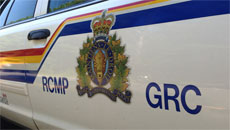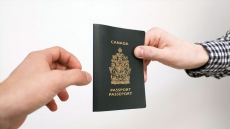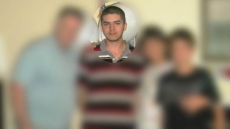VANCOUVER — Companies developing breathalyzers to detect marijuana's main psychoactive ingredient in suspected cannabis-impaired drivers appear to be entering a crowded field as Canada prepares to legalize pot.
Health Minister Jane Philpott announced Wednesday at a special United Nations session on drugs that legislation to begin the process of legalizing and regulating pot will be introduced next spring.
A University of British Columbia engineering professor is the latest to create a breathalyzer she says can detect THC levels in the breath of someone who has smoked pot.
Mina Hoorfar said Wednesday that the hand-held device, about the size of two fingers together, can help police detect the chemical in a driver's breath within seconds, unlike blood analysis or spit tests, which are not immediate.
She said the "microfluidic breath analyzer" costs about $15 to manufacture and is blue-tooth enabled so people can monitor their own THC levels with a cellphone.
"The sniffer," as she also called it, is superior to competing breathalyzers because it is highly sensitive to pot's major high-inducing component, Hoorfar said.
False positives are a problem with other devices "because any other odour can interfere with THC. With ours we separate all kinds of molecules. There won't be any false positive with ours."

Hoorfar and her colleague, PhD student Mohammad Paknahad, are in the process of applying to a university ethics board for a clinical trial.
Hoorfar said the device can detect THC on someone's breath for about 12 hours but she and Paknahad are trying to push that up to 24 hours with their prototype.
Canadians suspected of driving while impaired by marijuana or other drugs face the same penalties as those who get behind the wheel after consuming alcohol.
The Criminal Code says a driver's blood sample may be taken under the direction of a qualified medical practitioner and that anyone who refuses or fails to comply with a demand to provide a sample commits an offence.
Kal Malhi, president of Vancouver-based Cannabix Technologies, said his company has raised millions of dollars to bring its marijuana breathalyzer to market.
He said the legalization of marijuana in Canada means police must have the right tools to get impaired drivers off the road for everyone's safety.
"Law enforcement has been hungry for it," said Malhi, who was a Mountie in the Vancouver area from 2000 to 2009. "Society needs something like this, just like it needed the alcohol breathalyzer."
Malhi said Cannabix is leading competitors in North America and is working with the University of Florida to conduct clinical trials before aiming to get it approved in the United States and Canada.
The company conducted 100 tests using six medicinal marijuana patients in Vancouver last year, he said, with 80 per cent accuracy before switching to another technology to get better results.
"We were the first to take on the technology and understand that THC can be detected in breath," he said. "We know intimately what's involved, how to detect it, how quickly THC evaporates from your system and the need to capture that quickly after an offence or a roadside offence.
"We have been flooded over the last 12 months by different states and different law enforcement agencies asking us to pilot-project our device."

At least three other devices have been developed in the United States in the quest to perfect a marijuana breath test — at Washington State University, by Lifelock Technologies of Colorado and Hound Labs of Oakland, Calif.
Washington, Oregon, Alaska and Colorado have legalized recreational and medicinal use of marijuana while residents of 19 other states can take pot for medical purposes only. In Washington, the maximum THC level allowed for drivers is five nanograms per millilitre of blood.




